If Saint Paul wanted to talk about separation, there is a thing or two we could teach him. We are still living with the effects of a global pandemic that affected (is still affecting) nearly every aspect of our lives. Employees of all stripes worked from home; some still are. Others, who, due to the nature of their work, could not work from home, continued to clock in at their places of employment and were deemed "Frontline Heroes."

We stayed home. We separated from family, friends, and neighbors. We masked our faces to protect one another while also being able to hide our non-verbals better.
Without Facetime, Skype, and Zoom, we would have flooded the United States Postal Service with letters to stay connected with those we hold closest.
The way we responded to the pandemic further separated our communities. Stay-at-home orders, vaccines, and masking, along with the latest community infection rates, led to discussions, at best, and arguments, at worst, further widening the distance of our separation.

During the pandemic, I served as a Chaplain at Mary Washington Hospital in Fredericksburg, Virginia. Before you think of me as a Frontline Hero, you need to know this was a requirement for my ordination that coincided with a global pandemic. Throughout the Delta and Omicron waves, I experienced firsthand how separated we were as parents had to choose who would be their child's one and only visitor, as families chose five people to say goodbye to the matriarch of the family while I stood in the parking lot and prayed with the 15 people who were not allowed to enter the building. Patients died while nurses held up a iPads because family and friends were not permitted to travel. Parents celebrated the birth of children and mourned the death of a newborn without their family surrounding them in love and support.
My first shift as a hospital chaplain was an overnight weekend, Saturday afternoon through Sunday morning. I figured this work was not for me if I could not hack it in an 18-hour weekend shift. That first night I helped two parents send their newborn to Children's Hospital, assisted the family of a patient involved in a vehicle crash, made my rounds in the ICU and Behavioral Health wings, and was present for three COVID-related deaths. I got in my car at 8:30 AM, ready to go home, and asked, "God, where were you?! It seems to me like you really dropped the ball."
You need to know that until that moment, I had been a silent prayer-type pastor. I rarely prayed my prayers out loud, but in the cold of the employee parking garage, I could not keep quiet. The distance between me and God, my patients and God, and between the swirling unknowns of the pandemic and God felt like they were too much. The separation was too much, I thought.
We could teach Saint Paul a thing or two about separation.
As we close out chapter eight of Paul's letter to the Romans, we find ourselves at the climax of Paul's thesis.
"Who will separate us from the love of Christ?"[i]
Paul's question is one we cannot take lightly. For the past eight chapters, for the past 219 verses, Paul's systematic theology has been working toward this moment.
Who will rescue us from Death? Jesus.
Because Jesus is our rescuer, we do not face condemnation and instead live a new life through the Holy Spirit.
And, since we have new life in the Spirit, we are co-heirs with Christ.
And, because we are co-heirs with Christ, we live with hope knowing that God makes Creation, every nook and cranny, right.
So, when Paul asks, "Who will separate us from the love of Christ?"[ii] he asks a question he has already answered.
What can separate us from the love of God? What can separate us from the freely given grace of God?
Not sin, nor death! Nothing of this world.
"Will hardship, or distress, or persecution, or famine, or nakedness, or peril, or sword?"[iii]
"Neither death, nor life, nor angels, nor rulers, nor things present, nor things to come, nor powers, nor height, nor depth, nor anything else in all creation, will be able to separate us from the love of God in Christ Jesus our Lord."[iv]
After one of the first deaths I covered at the hospital, the family asked if I would help them begin to prepare the funeral for their loved one. Being a pastor, I had planned funerals. Their first question to me was about scripture readings. They asked how you sum up their loved one's life and the family's grief. They, too, felt the separation from God at that moment. "How could this work for good," they asked. Maybe you have asked the same question when faced with the death of a loved one.
I told the family it seemed to me that they were asking the very question Paul asks in Romans 8. The same question I had asked after my first overnight shift.
Paul is less concerned with the things that divide us – pandemics, politics, family feuds, church disagreements over the color of the sanctuary carpet, or personality conflicts with the new pastor. Instead, Paul is looking toward the cosmic reordering of creation where the ultimate separator, Death, caused by Sin, is defeated. And Paul's proof of this cosmic reordering is none other than the life, death, and resurrection of Jesus. Nothing can separate us from the love of God, and Paul's grand historical evidence for God being for us and with us is the ministry of Jesus of Nazareth.
Sometimes we can go through life feeling like our relationship with God is the same as how we felt about our relationships with family or friends during the pandemic. We can feel isolated and alone. We can feel forgotten.
When we feel this way, we imagine we are the only person in our community experiencing the feeling of isolation.
We tell ourselves, "God feels miles away, and no one understands."
Mother Teresa felt a calling to serve people experiencing poverty in India. In 1950, she founded the Missionaries of Charity and established leprosy-outreach clinics throughout Calcutta, providing medication, wound dressings, and food. She said, "I was to leave the convent and help the poor while living among them. It was an order (from Jesus). To fail would have been to break the faith."[v]
Privately, Teresa had doubts about God's existence. She felt separated. In one of her private writings, published after her death, she wrote, "Where is my faith? Even deep down... there is nothing but emptiness and darkness... If there be God – please forgive me. When I try to raise my thoughts to Heaven, there is such convicting emptiness that those very thoughts return like sharp knives and hurt my very soul."[vi]
Whether we are a canonized Saint, a hospital chaplain during a pandemic, or someone who week in and week out sits on a hardwood pew waiting for God to reveal themself, the separation we feel that is present can give us reason to doubt and wonder, which in turn can lead to us wandering away from our faith.
"Who will separate us from the love of Christ?"[vii]
There is nothing that can separate us from the love of God.
Not Sin.
Not Death.
For if Sin and Death can separate us from God, if they do, we are doomed.
While we may have a thing or two to teach Saint Paul about separation, Paul reminds the Church that when we feel alone or abandoned, the grace of God is ours. Whether we know it or not, God's grace is preveniently ours, meaning God's grace goes before us.
Our best selves do not prevent a separation. There is no number of good deeds that can be done to make the grace of God more yours. Likewise, our worst selves do not "separate us from the love of God in Christ Jesus," in whom we find rest.
Through Jesus Christ, not only comes the forgiveness of sins but also the rectification of all things that separate us from one another and make us feel as though we are separated from God.
God is stronger than our Sin.
God is stronger than our Death.
[i] Romans 8:35
[ii] Romans 8:35
[iii] Romans 8:35b
[iv] Romans 8:38
[v] Clucas, Joan Graff. World Leaders Past & Present: Mother Teresa.
[vi] Mother Teresa, Brian Kolodiejchuk. Mother Teresa: Come Be My Light: The Private Writings of the Saint of Calcutta. Image. 2009.
[vii] Romans 8:35





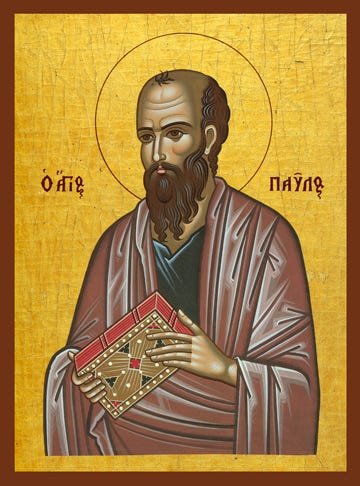
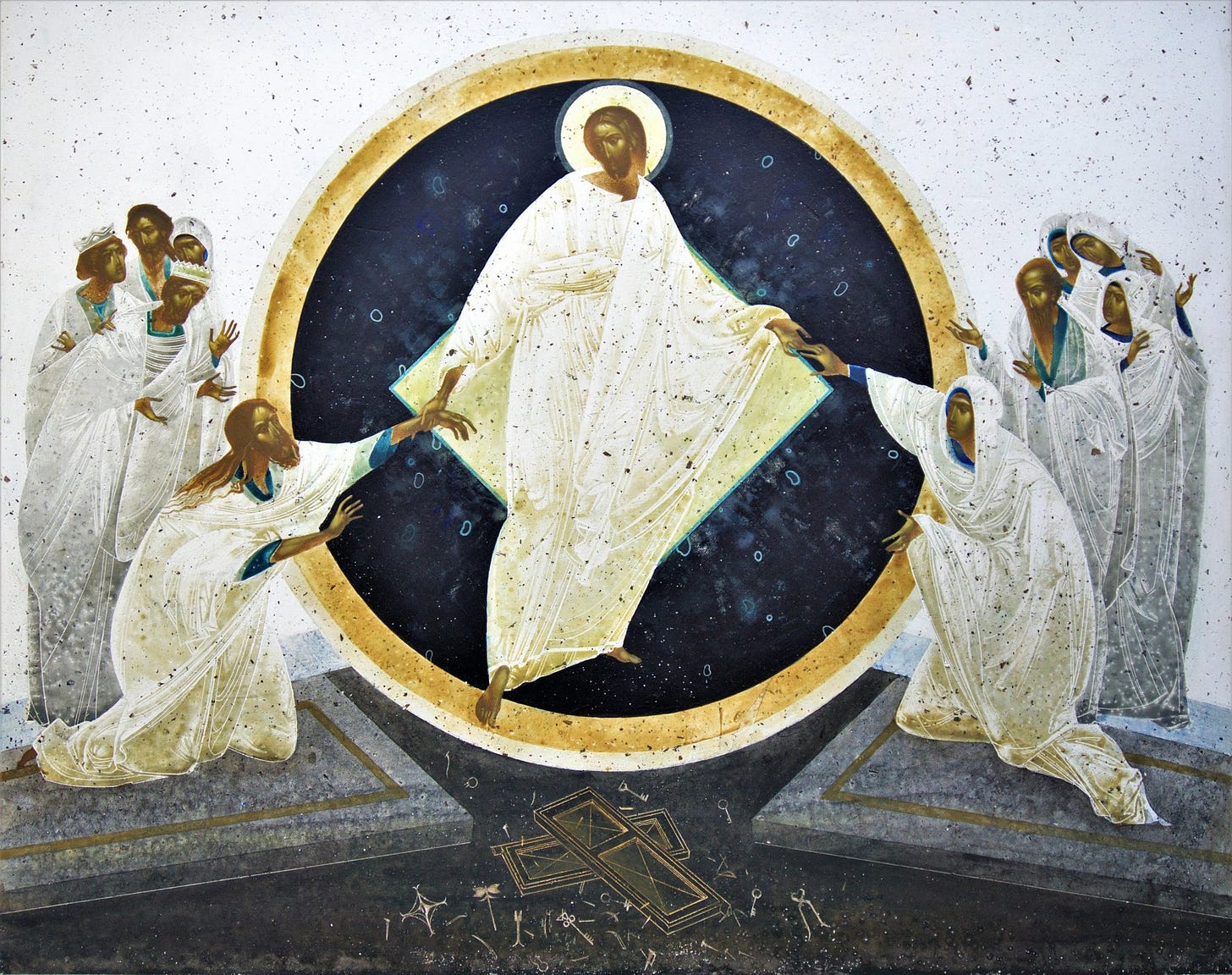
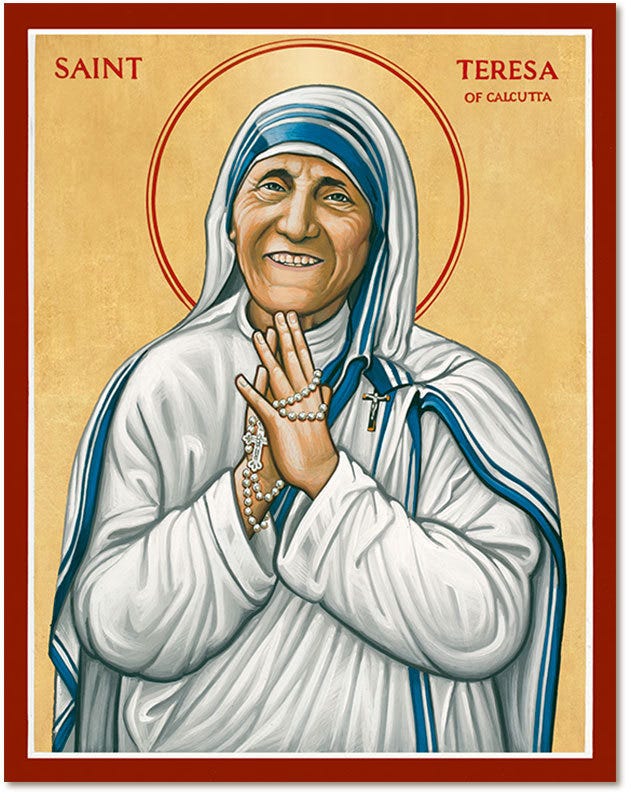
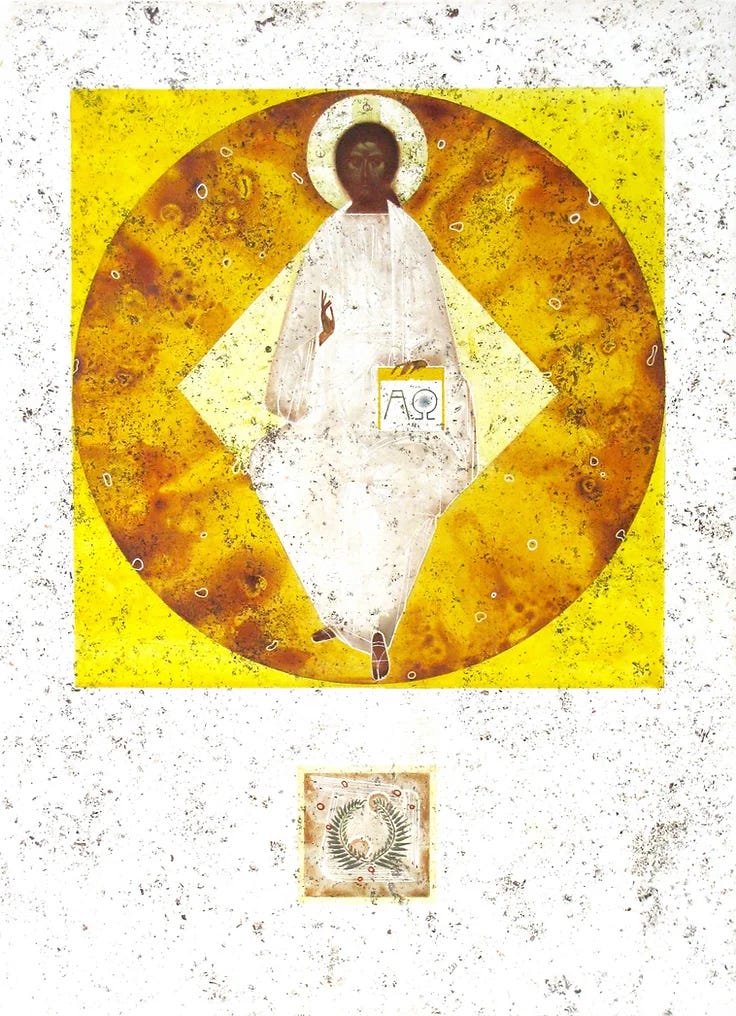








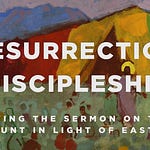
Share this post